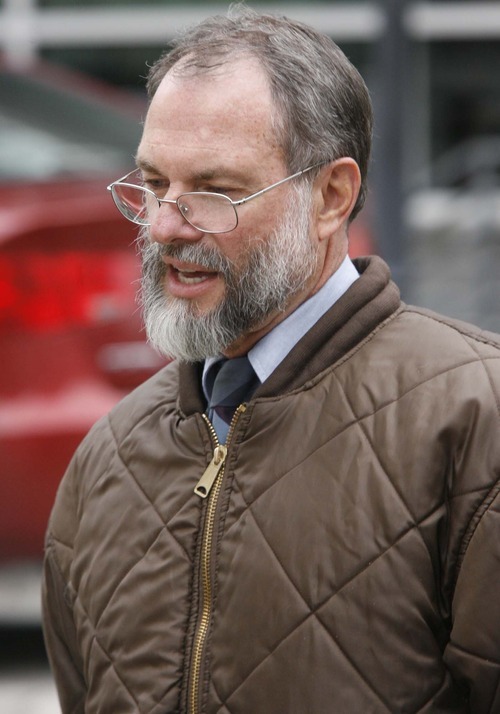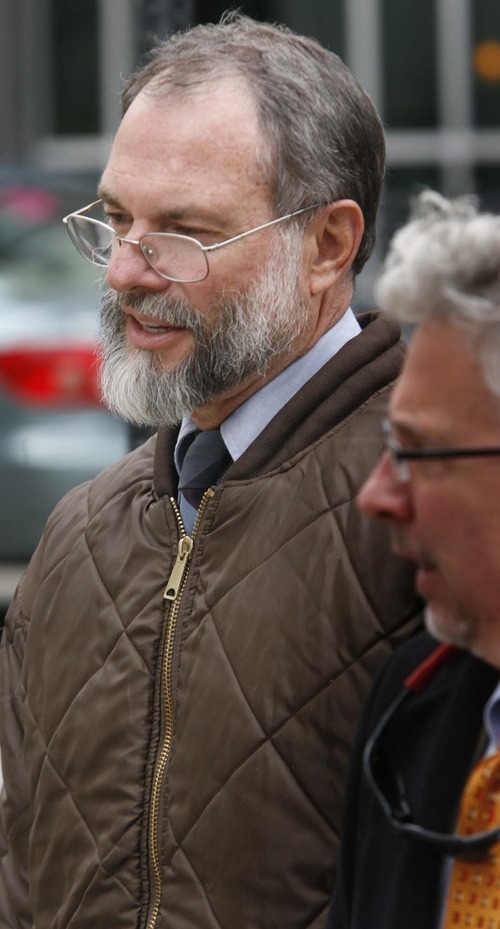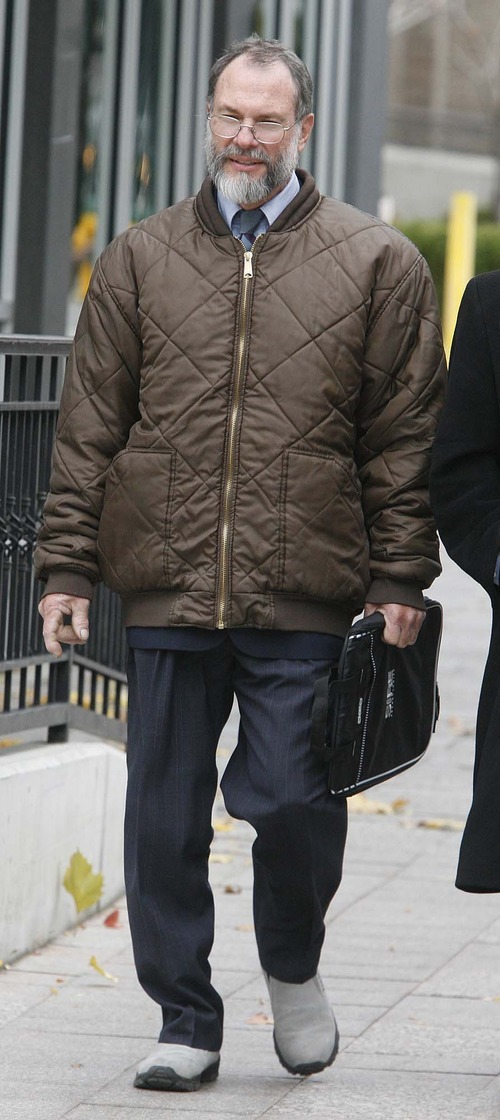This is an archived article that was published on sltrib.com in 2010, and information in the article may be outdated. It is provided only for personal research purposes and may not be reprinted.
A Colorado man indicted in last year's federal raid on Four Corners artifact looters and traffickers pleaded guilty Tuesday to excavating an archaeological site on public lands without a government permit.
Richard Bourret, 61, of Durango, Colo., admitted to the felony in U.S. District Court in Salt Lake City. The charge carries a maximum prison term of two years, although attorneys for Bourret and the government agreed to a plea deal that likely will result in a milder punishment.
Judge Dee Benson set sentencing for Feb. 1.
Bourret's plea included acknowledgment that on Sept. 14, 2008, he accompanied an undercover government operative to a Puebloan burial site in San Juan County.
Using a shovel, Bourret helped another defendant, Carl Lavern "Vern" Crites, an antiquities dealer from Durango, unearth a burial site, including a skull. According to his plea agreement, Bourret said the group unearthed human remains, potsherds and a knife.
Benson asked Bourret whether he participated in the excavation with the intent to take American Indian cultural resources.
"Yes, Your Honor, I did," he said.
Crites, 76, and his wife, Marie, 69, were scheduled for a change-of-plea hearing after Bourret. But the couple's Tuesday appearance was canceled and not immediately rescheduled.
The defendants are among 26 people — 20 of them from Utah — busted in or after a June 2009 raid that followed a 2½-year investigation carried out with the help of an undercover artifacts dealer, Utahn Ted Gardiner.
Court documents say Vern Crites and Bourret were surreptitiously recorded while taking Gardiner to — and digging in — a federally protected Puebloan Indian burial site.
After Tuesday's hearing, Bourret's Salt Lake City attorney, Mark Moffat, said his client has no record of dealing in artifacts anywhere, and he will ask Benson to be as lenient as possible.
"This is out of character" for Bourret, he said.
The agreement with federal prosecutors recommends that, if the judge places Bourret on probation, he should be barred from entering federal or tribal lands.
So far, every defendant who has been sentenced in the artifact case has received probation — except for Charles Denton Armstrong, who went to prison for threatening to beat up Gardiner with a baseball bat.
The Criteses face seven felony counts, each carrying up to a $250,000 fine and 10 years in prison. After the indictments, they surrendered an extensive collection of artifacts, which court documents say included prayer sticks, fire sticks, a bone scraper and "cloud blowers" that the Hopis and their ancestors used in prayer offerings.
Their indictment included charges against Bourret and Steven Shrader, of Santa Fe, N.M., who later shot himself to death in Illinois. Another defendant in the case, Blanding physician James Redd, also committed suicide after the arrests, as did the government's operative, Gardiner.
Redd's widow, Jeanne, and daughter, Jericca, pleaded guilty to artifacts-trafficking charges and are on probation.
Who has been sentenced so far
Probation • Jeanne Redd and daughter Jericca Redd, both of Blanding
Probation • Dale Lyman, Blanding
Probation • Brent Bullock and Tammy Shumway, both of Moab
Probation • Nicholas Laws, Blanding
Probation • Robert Knowlton, Grand Junction, Colo.
Probation • Ray Lyman, Blanding
Probation • Aubry Patterson, Blanding
Prison (for threatening undercover operative) • Charles Denton Armstrong, Blanding







